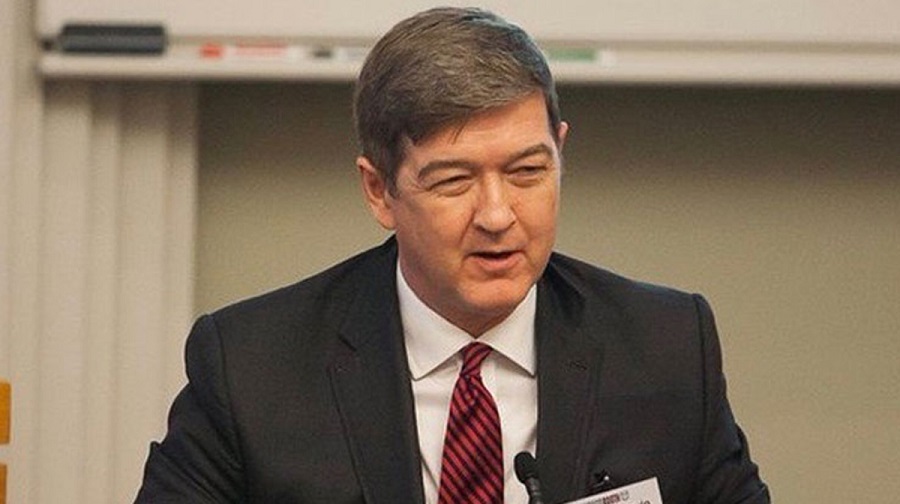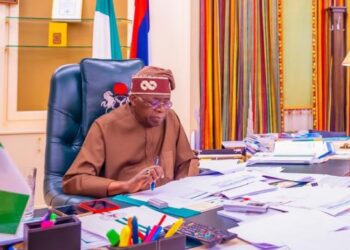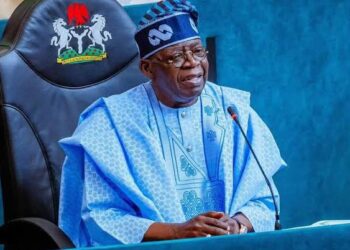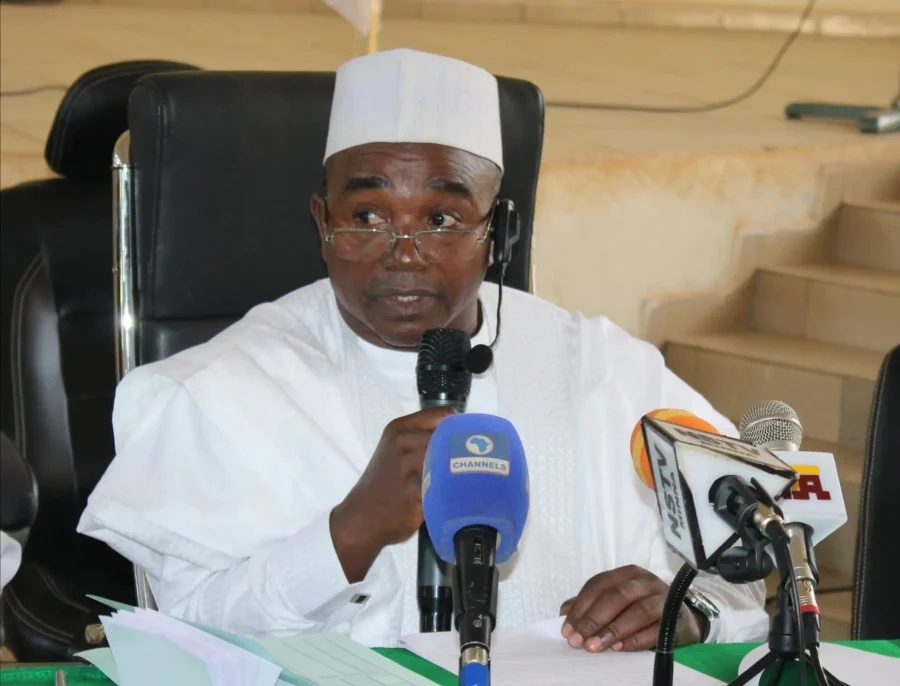Key highlights
- The new government needs to make the kind of changes and policy decisions that will lead to higher growth
- Nigeria’s tax jurisdiction is high — 65 different taxes in Nigeria
- Spending much money on infrastructure in Africa hasn’t really led to higher economic growth
- The number one reason we are having high inflation is the weak naira
Over the past eight years, Nigeria has experienced two recessions. The economy is growing at an unimpressive rate in tandem with its population growth. High inflation, high-interest rates, a mounting debt burden, and a weak naira, to name a few, will be challenging for the incoming administration.
Nairametrics caught up with Dr Andrew Nevin, the Chief Economist at PricewaterhouseCoopers (PWC), who shared his thoughts on the challenges the incoming administration will face. He also proffered some solutions.
Enjoy the conversation.
NAIRAMETRICS: The Nigerian government has projected a GDP growth of 3.1% for 2023. But the persistent naira crisis is hampering domestic trade. Also, political uncertainty may have an impact on investment (domestic and foreign). Do those factors threaten Nigeria’s 3.1% growth projection? To what extent?
Dr Andrew Nevin: PWC’s perspective is that a 3.1% growth rate is not good enough. We should be growing at six to 10%. So, whether it’s 3.1 or whatever is still very poor given the economic opportunities, potential, and population growth rate of this country. In terms of what threatens it, I think it just depends on the new administration doing the things that are going to encourage inclusive and sustainable growth.
We have lost eight years in the economy; it’s been very painful for hundreds of millions of Nigerians. The new government needs to make the kind of changes and policy decisions that will lead to higher growth. People have said for years that we should grow the economy by 6, 8, or 10%. I think 10% is easily achievable if we have the right policies.
NAIRAMETRICS: There seems to be no short-term solution to Nigeria’s debt conundrum. What can the incoming government do differently to reduce Nigeria’s debt burden?
Dr Andrew Nevin: On Nigeria’s debt, we have been clear for the last six to seven years that the issue is not about debt; it is not about revenue, as the minister of finance says. If we grow the economy, we’re not going to have a debt problem. When we grow 2 or 3% people are getting poorer and poorer because it’s not above the population growth rate, and it’s very difficult to raise revenue.
So, the number one thing is we need to grow the economy by 6, 8, or 10%. Our debt level is still not that high by international standards, and if we grew the economy quickly at a higher rate, we would not have a debt problem. The other thing with debt, which the President-elect has promised, is to remove fuel subsidies. It’s an N7 trillion naira hole in the economy.
I think we have a deficit of N12 trillion; so it immediately comes down and reduces interest rates, which is simply not sustainable. So, between higher growth and removing the fuel subsidy, I think we’ll get our debt under control fairly quickly.
NAIRAMETRICS: Foreign direct investments have been on the decline over the past several years. Why has that been so? What should the incoming administration do to attract FDI?
Dr Andrew Nevin: Whether it’s people investing domestically or diaspora investment or foreign direct investment, the truth is that Nigeria is a pretty harsh environment. It’s complex. Every business has multiple MDAs that oversee it with multiple overlapping regulations.
It’s difficult to move forward; everything is expensive; we’ve documented about 65 taxes in Nigeria. Some people say we’re a low-tax jurisdiction, but in fact, we’re a high-tax jurisdiction. We’ve tried to make progress with PEBEC; the incredible Dr Jumoke Oduwole is a national heroine in Nigeria. B
ut the reality is that our business environment is getting harsher and harsher, and as the government struggles with its deficit and its debt problem it’s becoming even worse because different MDAs are trying to raise more and more money out of the system. So, unless we fundamentally tackle this harsh business climate, we’re not going to attract investment, whether it’s from the diaspora, domestic investors, or foreign investors.
NAIRAMETRICS: Many economists say Nigeria’s infrastructure deficit is stalling economic growth. To what extent do you agree?
Dr Andrew Nevin: With respect to infrastructure, I think we’ve come out and said the best economic path forward is really to focus on exporting services, and the infrastructure, in that case, is not necessarily roads and ports, but electricity – not electricity on an industrial scale, but something that solar power can produce. So, in that sense, the infrastructure deficit is stalling us. We need more bandwidth; we need more power so that people can use their devices.
But in terms of infrastructure spending like the ports, roads and railroads, I think the evidence is mixed. There has been a real focus on this in Africa over the last decade. Huge amounts have been spent in many countries on infrastructure. But spending much money on infrastructure in Africa hasn’t led to higher economic growth. So, I’m wary about putting tens of billions of naira into new infrastructure. Sometimes, of course, we put money into infrastructure, and we get nothing for it. So, we spent $500 million on the new airports in Lagos and Abuja, and the large aircraft can’t park there.
In a sense, we’ve created another $500 million in dead capital. So, I’m wary, until we show that we can produce an infrastructure project designed in the right way that delivers value, I’m worried about this large-scale infrastructure. We built the Kaduna railroad but because of insecurity and the probability of getting bombed again, I’m afraid it may end up being another dead asset.
Specifically, on electricity, I think we’ve been very clear that the issue of electricity should be a state matter. There is so much complexity in producing electricity now. There are so many technology options and costs, and it depends on what is best for the local community, so we figure out that local communities and states should figure out the best way to produce electricity. Regarding the idea of the Siemens project, I am wary we’re going to produce more dead capital and debt burden.
NAIRAMETRICS: Year-on-Year inflation is almost 22%. Nigerians are losing their wealth to inflation. What should the incoming administration do to reduce the rate of inflation?
Dr Andrew Nevin: Inflation is a terrible scourge that particularly affects the bottom of the pyramid. The fact that we have more than 20% inflation is harming so many people around our nation. But the number one reason we are having high inflation is because of the weak naira. We import inflation because there are so many things that we need to import.
We don’t necessarily have to produce cell phones in the next five years – we’re not going to be able to do that. But we need to have a stronger naira; so, we need to export more; there are two major factors affecting export earnings. One is allowing the production of oil to collapse. The fact that we went from a production of 2.0 million barrels per day in 2010 and 2011 to hitting a low of 1.0 million barrels per day is one of the reasons the naira is weak. At $85 per barrel of oil, if we were producing 1.6, 1.8 to 2 million barrels per day the naira would be getting stronger.
The second source of exports for us is service exports. If we increase service exports and oil production the naira will stabilize, and even appreciate – and that would take pressure off the system.























